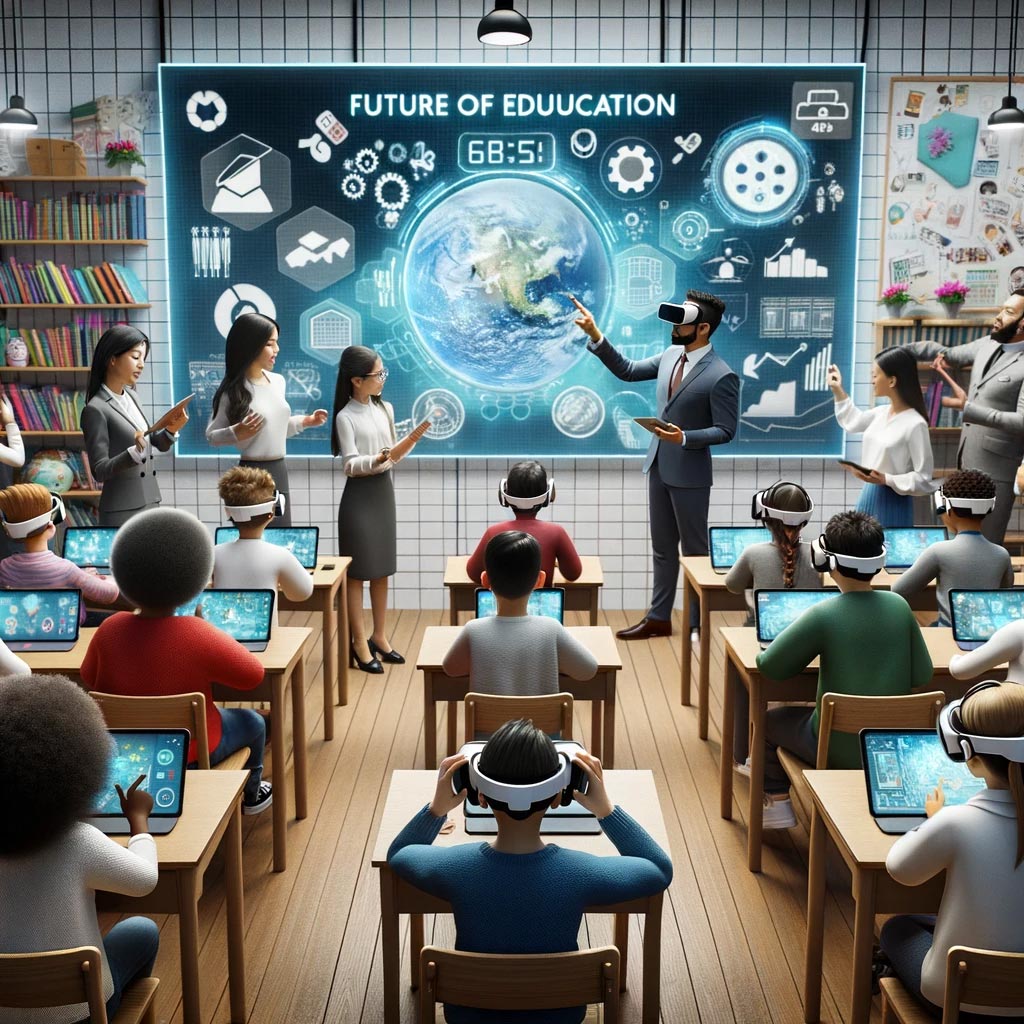
Excelling in the digital age demands more than basic technological skills. It’s about adapting to change, thinking critically, communicating effectively, and confidently navigating the growing complexities of the digital landscape.
Whether you're a professional aiming to enhance your career or a student preparing for the workforce, developing the proper skills can make all the difference. With actionable insights and relatable examples, let's explore the most impactful skills for thriving in this era.
Table of Content
Digital Literacy

Digital literacy is more than operating devices—it's the ability to effectively locate, evaluate, and create information using digital tools. It's a foundational skill today, much like basic literacy was in the past.
Understanding Digital Literacy
Imagine you're asked to research a topic online. You type a query into a search engine and get millions of results. Digital literacy helps you sift through that information, identify credible sources, and synthesize the needed knowledge. A report from the Pew Research Center found that only 26% of adults feel confident in their capacity to evaluate the reliability and accuracy of online information. This highlights why digital literacy is so crucial.
How to Develop Digital Literacy
To develop digital literacy, begin by familiarizing yourself with common tools such as Google Workspace and Microsoft Office, which are integral to digital communication and productivity. It is also essential to verify the credibility of information by using reliable fact-checking websites like Snopes or official government resources. Online courses like Coursera or Khan Academy can enhance digital skills and understanding. Additionally, ethical usage must always be practiced by respecting copyright laws and prioritizing data privacy to ensure responsible behavior in the digital space.
Adaptability and Flexibility
If there's one constant in the digital age, it's change. Technologies evolve rapidly, industries shift in response to new demands, and job roles are continuously redefined. This dynamic environment requires individuals to be skilled in their work, adaptable, and flexible. The ability to pivot, learn, and adjust has become invaluable for professionals across all sectors.
Why Adaptability Essential
Adaptability ensures resilience in the face of unexpected circumstances. The sudden global shift to remote work during the pandemic is a prime example. Companies worldwide were forced to transition to virtual operations almost overnight. Those who quickly adopted tools such as Zoom for video conferencing, Slack for team communication, and cloud-based platforms for collaboration found the adjustment far smoother. Employees open to learning these new tools and processes demonstrated adaptability, allowing businesses to continue functioning with minimal disruption.
A LinkedIn study highlights adaptability as one of the top five soft skills employers value in 2024. This trend reflects the growing emphasis on hiring individuals who can navigate shifting circumstances, whether adapting to remote work, embracing new technologies, or taking on roles requiring cross-functional expertise. Employers increasingly prioritize candidates who demonstrate flexibility, which indicates a willingness to learn, evolve, and contribute effectively in uncertain situations.
How to Cultivate Adaptability
Cultivating adaptability begins with adopting a growth mindset—the belief that skills and potentialities can be developed through effort and learning. This mindset helps individuals approach challenges with curiosity rather than fear, allowing them to view setbacks as opportunities for growth rather than failures. For example, learning a new tool like project management software such as Asana or Trello can initially seem daunting. However, exploring its features, asking questions, and seeking guidance can transform an initial challenge into a valuable skill.
Staying informed about industry trends and emerging technologies is another critical aspect of adaptability. By tracking advancements, professionals can anticipate changes rather than merely react.
For instance, someone in digital marketing might explore the growing use of artificial intelligence in campaign analytics. Understanding how AI can streamline processes or improve targeting could give them an edge in their role.
Feedback plays a significant role in personal growth and adaptability. When embraced positively, constructive criticism provides valuable insights into areas for improvement. For example, a team member receiving feedback on a presentation style might use this to enhance their communication skills, leading to improved performance in future projects. Adaptability isn't solely about technology or processes—it's also about evolving as an individual.
Critical Thinking and Problem-Solving

Critical thinking and problem-solving have become indispensable skills in a world saturated with information, much of which can be misleading or incomplete. These competencies allow individuals to navigate complexity, analyze situations effectively, and make sound decisions.
Applying Critical Thinking
Critical thinking involves systematically analyzing information, considering its context, and evaluating its reliability before deciding. For instance, imagine a marketing professional needing more data about campaign strategies. One report might suggest that social media ads are the best avenue for engagement, while another advocates email marketing. A critical thinker would assess both sources, consider the target audience and objectives, and weigh the potential outcomes before choosing the most suitable approach.
According to a study by the World Economic Forum (WEF), critical thinking is consistently ranked as one of the most in-demand skills for the future workforce. As businesses increasingly rely on data-driven decisions, employees who can interpret and apply this data thoughtfully are highly valued.
Tips for Enhancing Problem-Solving Skills
Improving problem-solving skills requires a structured approach. Breaking down complex problems into smaller, more manageable components is often the initial step toward finding effective solutions. This technique makes it easier to focus on one aspect at a time, reducing the sense of being overwhelmed. For example, when managing a large-scale project, dividing tasks into specific milestones allows for a more organized and systematic approach.
Collaboration is another essential component. Working in diverse teams introduces varied perspectives and innovative solutions. For example, input from engineers, marketers, and end-users in a product design team can lead to a more well-rounded solution than if only one group were involved.
Asking thoughtful questions is fundamental to understanding problems deeply; instead of accepting surface-level information, probing into the "why" and "how" can uncover root causes and lead to more effective solutions. For instance, a customer service team investigating recurring complaints about delayed responses might ask why specific inquiries are delayed, how processes can be streamlined, and what tools could be implemented to address the issue.
Leveraging tools like Tableau or Excel is also effective for problem-solving. These platforms allow professionals to analyze data and visualize potential solutions. For example, a financial analyst using Excel to model budget scenarios can quickly identify cost-saving measures or investment opportunities, providing actionable insights to decision-makers.
Emotional Intelligence (EI)

Despite the digital transformation of modern workplaces, emotional intelligence (EI) plays a pivotal role in professional and personal success. While technology enables seamless communication across geographical boundaries, the human element—understanding emotions, building relationships, and fostering trust—remains irreplaceable.
Why Emotional Intelligence Essential
In a work environment dominated by virtual meetings, email exchanges, and instant messaging, the absence of face-to-face interaction can make it challenging to interpret emotional cues. Misunderstandings can arise when tone, context, or intent is misjudged, leading to conflict or decreased productivity. Emotional intelligence helps bridge this gap by enabling individuals to recognize and respond to emotions appropriately, even in virtual settings.
Research by TalentSmart emphasizes the importance of emotional intelligence (EI), revealing that it accounts for 58% of job performance across various roles. This means that professionals with high EI are more likely to excel in their careers, adapt to workplace challenges, and lead teams effectively. Beyond the workplace, EI enhances personal relationships by fostering empathy, reducing conflicts, and promoting meaningful connections.
Improving Emotional Intelligence
-
Start by understanding situations from others' perspectives, particularly during disagreements. Empathy allows you to acknowledge and validate others' feelings, diffusing tension and fostering mutual understanding. For example, empathizing with a colleague's workload challenges during a team conflict can lead to collaborative solutions rather than escalated disputes.
-
Reflect on your emotions regularly and assess how they influence your behavior and decision-making. Journaling can be a practical tool for this—recording your reactions to events can reveal patterns and help you manage emotions more effectively in future situations.
-
Active listening is a base of effective communication. Whether in person or virtual, focus entirely on the speaker, avoid interrupting, and ask clarifying questions. This shows respect, builds trust, and ensures you fully understand the other person's perspective.
-
High-stress environments can diminish emotional intelligence. Techniques like mindfulness meditation, taking deep breaths, or allowing yourself brief pauses throughout the day can help you maintain calmness and focus when facing pressure. These practices improve stress management and enhance your ability to think and respond calmly in challenging situations.
Collaboration and Communication

The digital age has revolutionized how people work together. Communication now transcends time zones and physical offices, with emails, chats, and virtual meetings becoming the norm. However, the effectiveness of collaboration still depends on the human ability to communicate, respect diverse perspectives, and work toward shared goals.
Effective Digital Communication
Consider the impact of a poorly worded email. Ambiguity or unintended tone can lead to confusion, misalignment, or conflict among team members. Conversely, clear, concise, and respectful communication can enhance team dynamics and productivity. According to Grammarly's 2023 report, teams prioritizing practical communication experience a 25% increase in productivity.
Written and spoken communication clarity is especially critical in virtual environments, where non-verbal cues are limited. For example, summarizing key points at the end of the discussion during a video call ensures everyone is on the same page. Similarly, using emojis sparingly in chat tools like Slack can help convey tone while maintaining professionalism.
Building Collaborative Skills
-
To streamline collaboration, use Slack, Microsoft Teams, or Google Drive. These platforms allow for seamless file sharing, real-time updates, and centralized communication, reducing inefficiencies and fostering teamwork.
-
Define roles, responsibilities, and deadlines at the start of any project. Accountability and alignment improve when everyone knows their tasks and the overall goals. For instance, a project manager might create a shared document outlining deliverables and assign ownership to specific team members.
-
Foster a welcoming environment where team members feel secure and motivated to share their ideas freely and discuss concerns without hesitation. Regular check-ins or feedback sessions help uncover potential issues early, enabling proactive problem-solving.
-
Show genuine interest in colleagues' input. Avoid interrupting or formulating responses while others are speaking. Instead, focus on understanding their message fully before responding. Active listening fosters mutual respect and strengthens trust among team members.
Creativity and Innovation

Creativity isn't confined to the arts; it's an essential skill that fuels innovation in fields ranging from technology to business. In today's competitive landscape, the ability to think creatively and approach challenges with fresh perspectives sets individuals and organizations apart.
How Creativity Fuels Success
The rise of TikTok provides a compelling example of creativity in action. Recognizing a gap in the market for short, engaging videos, its creators redefined the social media experience, attracting millions of users worldwide. Their innovative approach highlights how thinking outside the box can transform industries. According to Adobe's "State of Creativity" report, 78% of employees believe creativity is a key driver of economic growth, emphasizing its role in shaping the future.
Fostering Creativity
-
Engaging in activities outside your usual routine can spark fresh ideas. Whether painting, coding, or learning a musical instrument, hobbies stimulate imagination and encourage innovative thinking.
-
Dedicate time to idea generation in a judgment-free environment. During a brainstorming session, avoid immediately evaluating ideas. Instead, let thoughts flow freely; even unconventional suggestions can lead to groundbreaking solutions.
-
Ask "what if" questions to explore alternative approaches. For example, if your team traditionally markets products through paid ads, consider what might happen if you shift focus to influencer partnerships or organic content strategies.
-
Treat setbacks as learning opportunities rather than obstacles. Many successful innovations, from the Post-it Note to the microwave oven, emerged from failed experiments. Recognizing failure as a chance to learn and improve cultivates a mindset that supports innovation and personal growth.
Real-Life Example
Sarina, a mid-level marketing professional, needed help with digital trends. She started by taking a free online digital literacy course and joined a Slack group focused on digital marketing. By applying critical thinking and staying adaptable, Sarina successfully implemented a data-driven campaign at work, increasing her company's lead generation by 40%. Her journey underscores the value of continuously honing these essential skills.
Conclusion
The digital age offers immense opportunities for those who are prepared. By mastering digital literacy, staying adaptable, thinking critically, building emotional intelligence, and fostering creativity, you can position yourself for long-term success. Start by focusing on one skill at a time—progress is about consistency, not perfection. Remember, every small effort you make today will pave the way for a brighter tomorrow.
Life Skills Communication Skills Transferable Skills Soft Skills Critical Thinking Skills Leadership Skills Learning Skills




